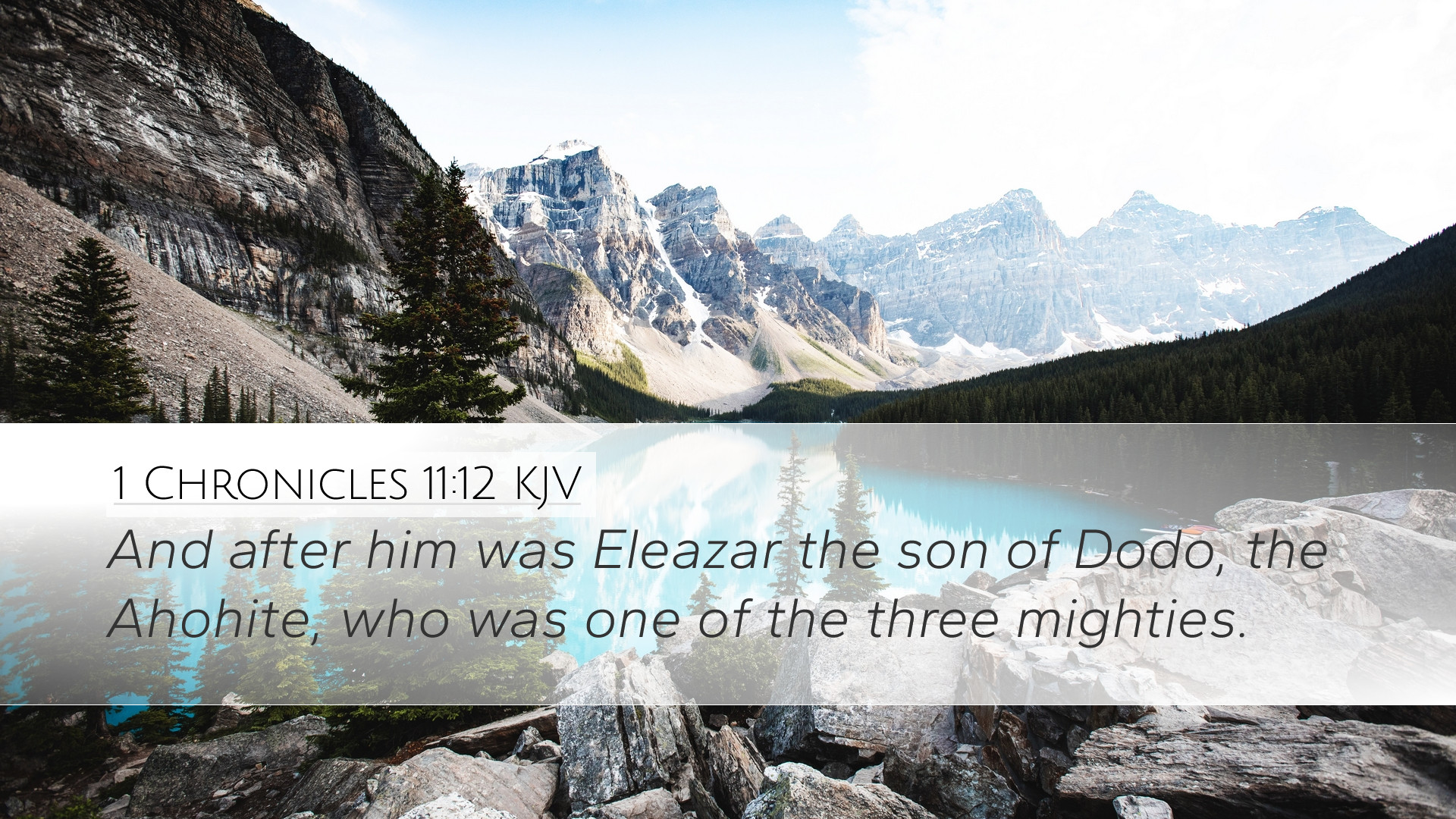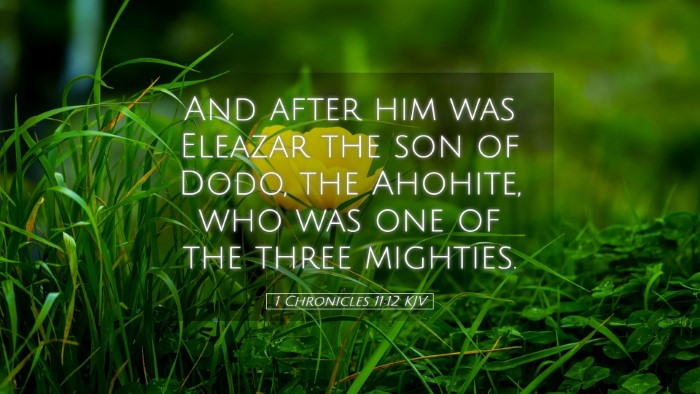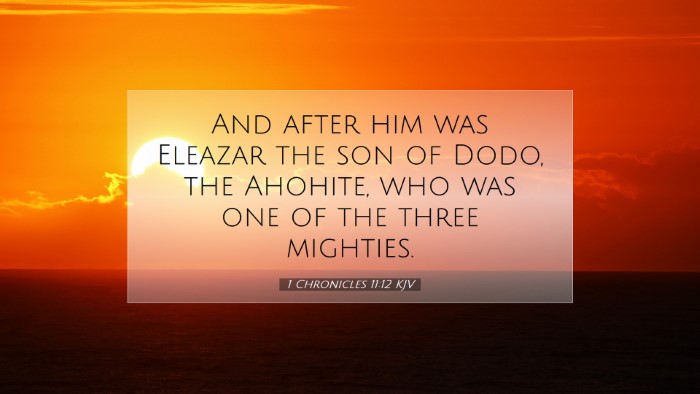Commentary on 1 Chronicles 11:12
Bible Verse: "And after him was Eleazar the son of Dodo, the Ahohite, one of the three mighties." (1 Chronicles 11:12)
Contextual Background
This verse is situated within the narrative of David’s mighty men, who are celebrated for their extraordinary valor and loyalty. The Chronicles aim to honor and preserve the memory of those who contributed to the establishment of David's kingdom. Eleazar is introduced here as a notable warrior among David's elite soldiers, highlighting not only his capability but also the importance of loyalty and bravery in David’s reign.
Insights from Commentaries
1. Matthew Henry’s Commentary
Matthew Henry emphasizes the significance of Eleazar's lineage and his exemplary courage. He notes that Eleazar was not just a member of David's retinue, but he took a prominent stand among the most distinguished warriors. This showcases that noble lineage does not dictate valor; rather, it is the individual's actions that define them.
Main Points from Henry:
- Eleazar's Courage: Henry remarks on Eleazar’s commendable bravery in battle, indicating that true valor is demonstrated through steadfastness in the face of challenges.
- Participation in Notable Conquests: He draws attention to Eleazar’s role in key battles, aligning him with heroism that shifted the tide in favor of Israel.
- Legacy of Loyalty: Henry points out that Eleazar’s loyalty to David represents a vital principle for spiritual leaders, calling attention to the need for commitment to God’s chosen leaders in the church.
2. Albert Barnes’ Notes
Albert Barnes provides a detailed analysis of the terminology and the historical background of the text. He asserts that Eleazar's name means "God has helped", which symbolizes divine assistance that empowers the soldier in his exploits. Barnes highlights that the 'mighty men' were those who had been tested and proven, reinforcing the importance of experience and divine intervention in achieving success.
- Divine Providence: Barnes discusses how the mightiness of Eleazar is attributed to God’s help, suggesting that success in any endeavor is fundamentally based on reliance on divine support.
- Military Ranks: The categorization of warriors into 'the three mighties' points to a systematic recognition of military prowess, which serves as an encouragement for others to strive for excellence.
- Implications for Leadership: Barnes notes the importance of inspiring others to valiant deeds through exemplary leadership, drawing parallels to contemporary church leadership dynamics.
3. Adam Clarke’s Commentary
Adam Clarke provides a profound understanding of the cultural and historical significance surrounding Eleazar’s position. He elaborates on the responsibilities of mighty men emphasizing that their reputation was built through past achievements, which created a standard for future soldiers. Clarke’s insights prompt reflection on how one’s reputation can precede them and shape the perceptions of others.
Key Takeaways from Clarke:
- Historical Context: Clarke emphasizes that the mighties were not only warriors but symbols of hope and faithfulness, reflective of their societal contributions beyond mere physical prowess.
- Personal Risk and Commitment: Clarke underscores that Eleazar's standing among the elite speaks to the personal risks taken during battles and requires a deep commitment to one’s nation and leader.
- Spiritual Application: He connects Eleazar’s physical battles to the spiritual battles faced by believers today, encouraging readers to stand firm in faith similarly to Eleazar.
Theological Reflections
This passage invites theological reflection concerning themes of bravery, commitment, and divine assistance. Eleazar's example becomes a typological representation of Christ. Just as Eleazar stood firm for David, believers are called to stand firm for Christ, facing trials with courage enabled by divine strength.
Application for Today’s Believers
Believers today can derive numerous applications from this text:
- Emboldened to Serve: Like Eleazar, individuals should seek out opportunities to serve in the kingdom of God, empowered by the confidence that God aids those who are faithful.
- Collective Strength: The narrative of David's mighty men emphasizes the power of community and collaboration in ministry, encouraging an ethos of mutual support among church members.
- Heroic Faith: The life of Eleazar serves as a model of living with conviction, daring to engage in spiritual battles not with physical weapons but through prayer, faith, and the Word of God.
In conclusion, 1 Chronicles 11:12 not only records a historical figure’s valor but establishes an enduring model of leadership and commitment that resonates with modern-day followers of Christ, urging them to remain steadfast in their pursuits and loyalties.


